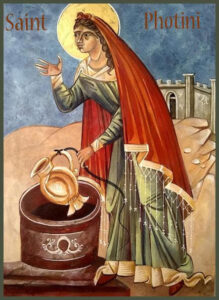 “You are the light of the world. … [L]et your light shine before others, so that they may see your good works and give glory to your Father in heaven.”[1]
“You are the light of the world. … [L]et your light shine before others, so that they may see your good works and give glory to your Father in heaven.”[1]
Last week, I read this story on Facebook:
I own a small bakery. Business has been slow. Rent is up. I was thinking about closing. Last Friday, a teenager came in. He looked nervous. He counted out change for a cookie. He was short 50 cents. “It’s okay,” I said. “Take it.” He ate it at a table, looking at his math homework. I walked over. “Quadratic equations?” He nodded. “I don’t get it.” I sat down and helped him for 20 minutes. He got it. He left smiling. The next day, he came back with two friends. They bought cookies. The day after that, five kids came. Apparently, he told the school, “The lady at the bakery helps with homework.” Now, my bakery is the after-school hang-out spot. It’s loud. It’s messy. There are backpacks everywhere, Yesterday, I found a note in the tip jar. It was wrapped around a $20 bill. “Thanks for helping my son pass math. A Mom.” I’m not closing the bakery. I think I finally found my purpose. It’s not cookies. It’s community.
This baker is a light shining before others. I think that both Jesus and the prophet Isaiah would have approved of this baker.
 We “boast in our sufferings,” writes Paul to the Romans, “knowing that suffering produces endurance, and endurance produces character, and character produces hope, and hope does not disappoint us….”
We “boast in our sufferings,” writes Paul to the Romans, “knowing that suffering produces endurance, and endurance produces character, and character produces hope, and hope does not disappoint us….”
 I have a friend whose face I have seen only in photographs. We have never been in the same room; we have never shaken hands; we have never spoken. Nonetheless, I have considered this person a friend for many years. We met (if that’s the right word) through a listserve of Episcopalians and Anglicans many years ago and continued our friendship when most of that group migrated to Facebook. A couple of months ago, I noticed that my friend had stopped posting to Facebook. I tried to contact them
I have a friend whose face I have seen only in photographs. We have never been in the same room; we have never shaken hands; we have never spoken. Nonetheless, I have considered this person a friend for many years. We met (if that’s the right word) through a listserve of Episcopalians and Anglicans many years ago and continued our friendship when most of that group migrated to Facebook. A couple of months ago, I noticed that my friend had stopped posting to Facebook. I tried to contact them
 I don’t think that a single day has passed since my adolescence that I haven’t thought about death, my own death. Mortality has been a reality of life for me since my father killed himself in a drunken automobile crash when I was five years old. In my pre-adolescent years, I was convinced I would die before I turned 22; I’m forty-five years beyond that limit and death is a closer probability now than it has ever been.
I don’t think that a single day has passed since my adolescence that I haven’t thought about death, my own death. Mortality has been a reality of life for me since my father killed himself in a drunken automobile crash when I was five years old. In my pre-adolescent years, I was convinced I would die before I turned 22; I’m forty-five years beyond that limit and death is a closer probability now than it has ever been./cdn.vox-cdn.com/uploads/chorus_image/image/63413151/notre_dame_001.0.jpg) Lenten Journal, Day 41
Lenten Journal, Day 41 Lenten Journal, Day 34
Lenten Journal, Day 34 Lenten Journal, Day 33
Lenten Journal, Day 33 Lenten Journal, Day 30
Lenten Journal, Day 30

